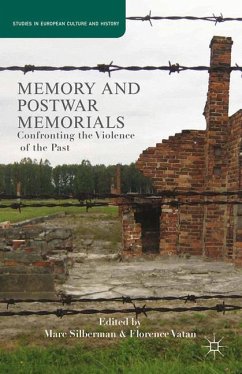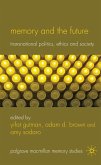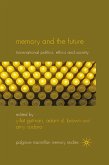The twentieth century witnessed genocides, ethnic cleansing, forced population expulsions, shifting borders, and other disruptions on an unprecedented scale. This book examines the work of memory and the ethics of healing in post authoritarian societies that have experienced state-perpetrated violence.
"As the essays in this volume explore memorial sites, museums, literary texts, and trials as contested sites of meaning making with regard to commemorating violent pasts, they significantly contribute to the study of predominantly European collective memories and commemorative practices." - H-Soz-u-Kult
"Marc Silberman and Florence Vatan have assembled an intriguing array of case studies providing a panorama of commemorative practices in post-conflict scenarios. Testimony to the mature status of memory studies, the distinctive essays provide rich insights into how divided societies cope with memories of past violence. Readers interested in recent mnemonic trajectories and attendant political and cultural practices - primarily but not exclusively in Europe - will find this book highly rewarding." - Daniel Levy, Associate Professor of Sociology, Stony Brook University, USA
"This rich volume provides a lively and engaging introduction to contemporary debates onthe global politics of memory. Silberman and Vatan have assembled a stellar group of established and emerging scholars whose work cuts across the continent of Europe and moves into non-European space as well. With a particular focus on the aftermath of violence, the essays collected here provide insight into the dynamics of cultural memory in state and grassroots commemorations, in museums and the media, and in trials and artistic performances." - Michael Rothberg, Professor of English, University of Illinois, Urbana-Champaign, USA, and author of Multidirectional Memory: Remembering the Holocaust in the Age of Decolonization
"Marc Silberman and Florence Vatan have assembled an intriguing array of case studies providing a panorama of commemorative practices in post-conflict scenarios. Testimony to the mature status of memory studies, the distinctive essays provide rich insights into how divided societies cope with memories of past violence. Readers interested in recent mnemonic trajectories and attendant political and cultural practices - primarily but not exclusively in Europe - will find this book highly rewarding." - Daniel Levy, Associate Professor of Sociology, Stony Brook University, USA
"This rich volume provides a lively and engaging introduction to contemporary debates onthe global politics of memory. Silberman and Vatan have assembled a stellar group of established and emerging scholars whose work cuts across the continent of Europe and moves into non-European space as well. With a particular focus on the aftermath of violence, the essays collected here provide insight into the dynamics of cultural memory in state and grassroots commemorations, in museums and the media, and in trials and artistic performances." - Michael Rothberg, Professor of English, University of Illinois, Urbana-Champaign, USA, and author of Multidirectional Memory: Remembering the Holocaust in the Age of Decolonization








